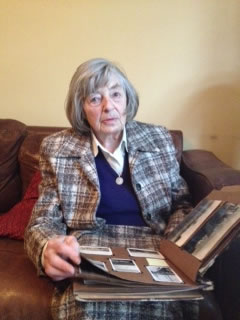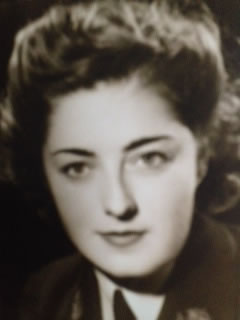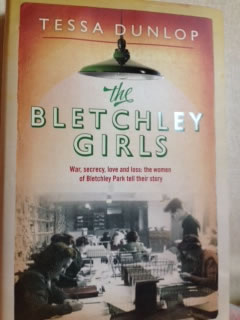Pat Davies Recalls Her Secret Wartime Career
The Chiswick resident features in a book on the women of Bletchley Park
|
Chiswick resident Pat Davies is a woman with a secret past. For three years during the Second World War, she intercepted German messages from naval traffic and passed them onto codebreakers at Bletchley Park.
Pat was one of thousands of women whose role in the war is now being recognised. Her story is featured in The Bletchley Girls, which documents the lives of fifteen women who worked at Bletchley Park - it is thought that up to 7,000 women known as Bletchleyettes, worked at the secret codebreaking HQ during the war.

Pat Davies recalls her life during the Second World War
Although Pat wasn't based at Bletchley Park and indeed only visited it for the first time in the 1980s, all her work intercepting messages from German naval ships was passed there- she has since been given the 'Freedom of Bletchley'.
Pat, who is 91, and originally from Lancashire, joined up as a Petty Officer Wren (as Pat Owtram) in the Womens' Royal Naval Service when war broke out and was sent for special training when it was discovered she could speak fluent German.
"I learned German from my grandfather's cooks who were Austrian refugees. He couldn't find anybody local to cook for him and then he employed these ladies who taught me German.
"After I was trained I was posted to the Secret Naval Intelligence radio station at Withernsea on the Yorkshire coast - we called it Station Y- Bletchley Park was Station X. While I was there I was listening to German ships in the Baltic and North Seas. Then I was sent Lyme Regis listening to Germans who had been posted to the lighthouses on the French coast. I also spent time at Abbots Cliff in Dover, where we picked up a lot of messages from naval traffic."

Pat aged 21 as a Wren
"I was on Special Duties 'W' service- the 'W' stood for 'secret' and was eventually promoted to Chief Petty Officer."
Pat and her team worked naval shifts, four hours on and eight hours off. Accuracy was vital- the interceptors wrote letter groups of code and teleprinted it to Bletchley Park. They also logged the messages as Morse Code. There was never any feedback from HQ about their work but they knew that secrecy was of utmost importance.
"I never discussed any of this work with my family - in fact my sister was based in Egypt as a FANY cipher officer with the army and we never spoke about any of it until years later. Of course we had signed the Official Secrets act but our every instinct was to keep things secret."
It was not until six years ago that honours were awarded to the women who worked at Bletchley Park and Pat agrees that there has been little recognition of their contribution until now.
"We were just expected to get back to civilian life. You never heard of any women becoming famous for their work, whereas we hear about the men like Alan Turing all the time".
Later Pat worked at the Admiralty and at the London headquarters of General Eisenhower translating documents which had been captured by the Allied forces in Germany.
"We were given these documents which had been sent back by the Army which was advancing and our role was to translate them so that they could find out information about war criminals."
Following her degrees at St Andrews, Oxford and a study fellowship to Harvard, Pat became a journalist, first working for The Daily Mail and then moving to Granada TV, where she produced ' 'University Challenge'. She then joined the BBC as a producer in London for a number of television series including 'The Sky at Night' and 'Ask The Family'.
"It was tremendously exciting- Patrick (Moore) and I travelled all over and we also interviewed Neil Armstrong after the moon landing."
Pat was married to the late Ray Davies, a BBC World journalist, for 39 years. She is still a very active member of the Grove Park community, and a regular at St Paul's Church.
Author Tessa Dunlop says that the women at Bletchley Park were treated as second fiddles to the men. They were the "worker ants", not the stars of Bletchley, ahd had been airbrushed from history for too long.

Pat has been interviewed this week on national media and says her phone has not stopped ringing since the book was launched. She is planning to travel to Paris for a short break with her sister.
"I've had a very interesting life and it wouldn't have happened had I not learned German from my grandfather's cook".
The book, The Bletchley Girls is on sale in Waterstones, Chiswick, published by Hodder & Stoughton at £20.
January 9, 2015